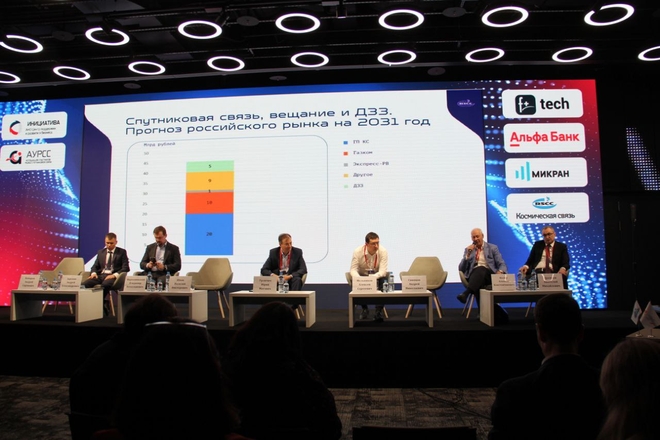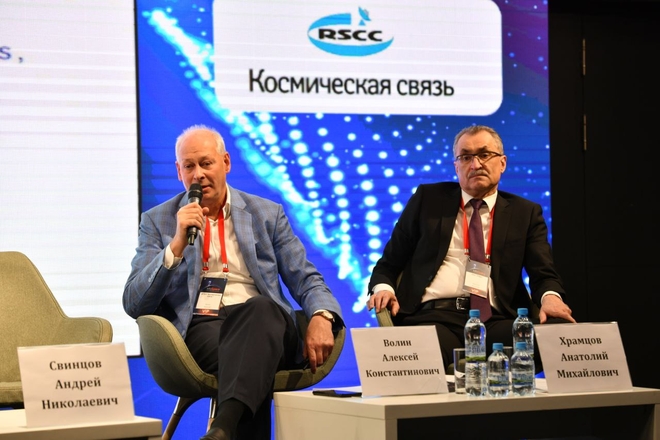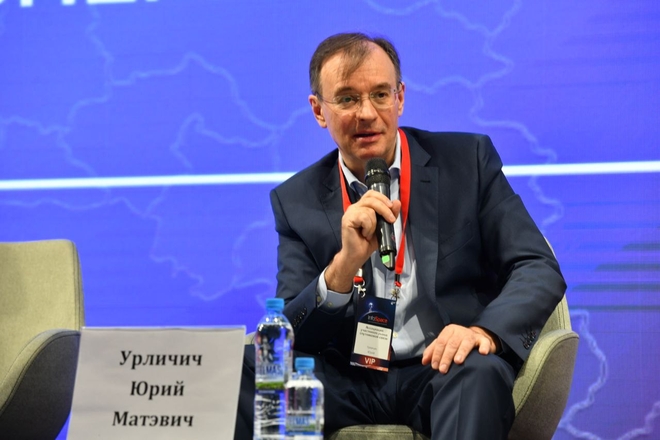Reliability, safety and redundancy: RSCC Director General Alexey Volin speaks about three pillars of the satellite industry
Satellite is essential for full-fledged digitization of all processes of the state, but the industry also relies on the state support in many ways. This is what Alexey Volin, Director General of RSCC, declared at the plenary session of the InfoSpace technology forum in Moscow on April 5.
"Today, almost all major players build business on contracts with governmental entities, without whose guaranteed orders most of the leading satellite constellations just will not be able to function", he said. For example, in 2021 and 2022, the revenues of Viasat from government-bought services stood at 47% and 39% of the total volume respectively. As for Eutelsat, such contracts account for just 12% of its revenues, but the company's development strategy is welcoming public orders from authorities of other countries. The same is true for an application that is rather popular nowadays: Earth remote sensing. Currently, the ERS market value stands at $1.6 bn, which is 1/7 of the space communications and broadcasting market. And the forecasts say that the whole global ERS market will make a total of $2.1 bn by 2028. Yet those services alone will not pay back without public orders.
The global trends of the industry are reflected in Russian realities, too. Many challenges faced by the industry before and emerging already after the spring of 2022 are in some instances also coped with only through governmental involvement.
Alexey Volin has identified a number of problems faced by the Russian satellite sector today. In particular, our country needs a unified comprehensive program that would link together individual projects. "It is also required to design universal receiving equipment so that users are not forced to acquire separate installations for each constellation, be it Skif, Yamal, Express, Marathon or Express-RV", he added. Besides, it is necessary to create our own digital payloads, our own VSAT stations, hubs, and coding systems. All that should serve the three basic principles: reliability, safety, and provision of additional capacity for redundancy.
Yuri Urlichich, Chairman of the Board of the Association of Satellite Communications Market Players and adviser to RSCC Director General, moderated the plenary session of the forum and pinpointed another array of global trends that affect the IT and communications sphere in one way or another. Those are the picking-up trend of smartphone communication via spacecraft, transition to 5G, and further to 6G, and cybersecurity with the use of quantum technologies.
The role of satellite in guaranteeing safety was also highlighted by Alexey Volin, who added that space-based quantum networks should yield a whole new level of data security for customers even in the remote areas of the country and the world. RSCC is not standing aside from this trend and signed an agreement with Russian Railways at the forum for the cooperation in this field.


